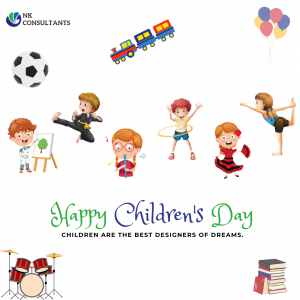
A big-budget movie is announced and a grand star cast is chosen. Throughout the making of the movie, regular tidbits are shown to the public. Then, comes the music launch which makes everyone sing and dance to its tunes. Soon the promotions of the movie create all the necessary excitement needed for viewers to book their tickets in advance and make their weekend plans. Alas!! After watching the movie all that viewers resolve is never to watch a movie without reviews from trusted sources.
Well…Working in an organization is no different from the movie experience. We get excited to get that much-anticipated interview call and then the appointment letter puts a big smile on our faces. But, once in the organization, we experience disappointment as what we had dreamt our organization would provide for us is far from what we get. The job dissatisfaction level hits an all-time low and we start looking for better prospects. The employer also experiences the same and begins to rethink the hiring process they have used.
Integrating individual goals with organizational goals is the key to maximizing job satisfaction and having engaged employees. This is not very difficult to achieve as scientifically designed psychometric tests can be administered on prospective candidates by organizations to see how well the applicant is suitable for the vacant position. Personality traits and cognitive abilities can be measured or assessed with the use of scientifically designed psychometric tests. These tests are powerful tools that assess the strengths and abilities of candidates which cannot be known through the interview process. For eg, If one wants a candidate who is a high orientation towards honesty and integrity then such traits can be easily captured through a well-designed psychometric test. Some of the popular psychometric tests used by organizations during the hiring process are specially designed cognitive ability tests to measure numerical ability, verbal ability, logical reasoning, spatial ability, mechanical ability, and so on. Personality tests that are very popular and widely used are the Big Five Personality Test, MBTI, DISC assessment, Situation Judgement test, and Predictive Index Behavioural Assessment.
Psychometric tests are an essential tool that can help hiring managers and teams make data-driven decisions and keep their personal biases in check. Instead of relying on gut feelings and unstructured interviews, organizations can design a multi-step data-driven hiring process that uses psychometric tests, job-related skills tests, and structured interviews to take informed decisions. Tests can provide an understanding of what each candidate is like, beyond their experience and motivation. By comparing candidates and analyzing results, hiring teams can predict the candidate’s fit for a role and get information that is otherwise nearly impossible to get from a resume or even an interview. The test scores must be interpreted by a trained person who can then help in better decisions regarding the hiring of the candidate.
But, such tests are not without its disadvantages. Such tests cannot be 100% accurate as candidates may give socially desirable answers, the test may not have been designed well, or the candidate may not be in the normal frame of mind while taking the test, which may result in inaccuracy. Psychometric tests must be one of the important steps in the hiring process and not the only way to select candidates.
A perfect fit between organizations and individuals is the key to increased productivity and stress-free work life. So, choose the most appropriate Psychometric test and begin acquiring talented individuals for your organization.
-By Dr. Vidhya Thakkar
Asst. Professor at K J Somaiya Institute of Management, Mumbai
Career Counsellor, Ph.D







